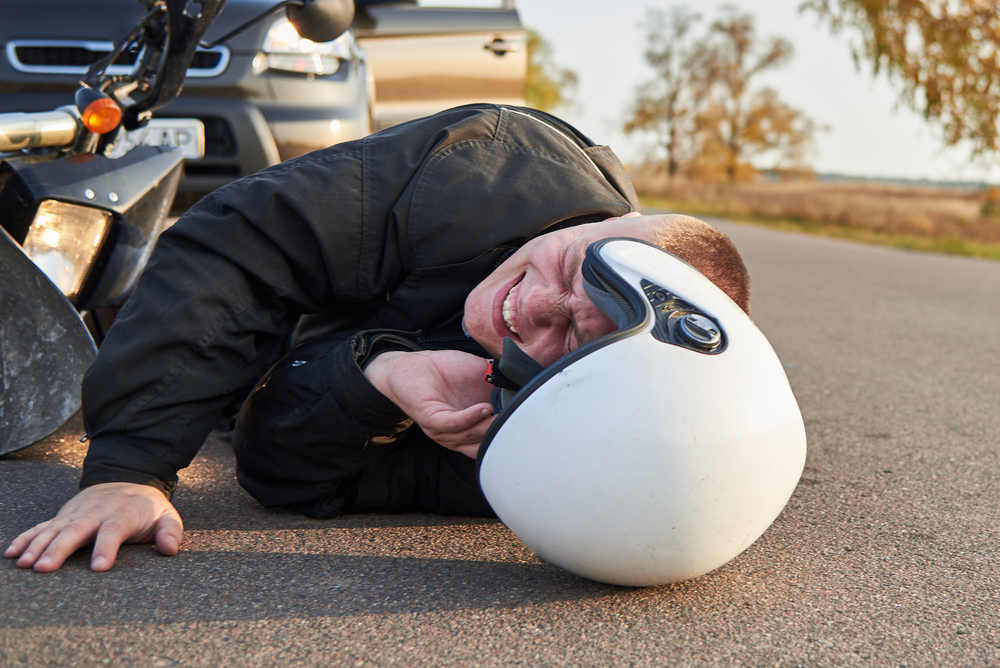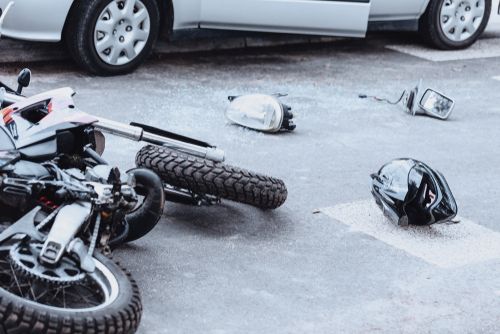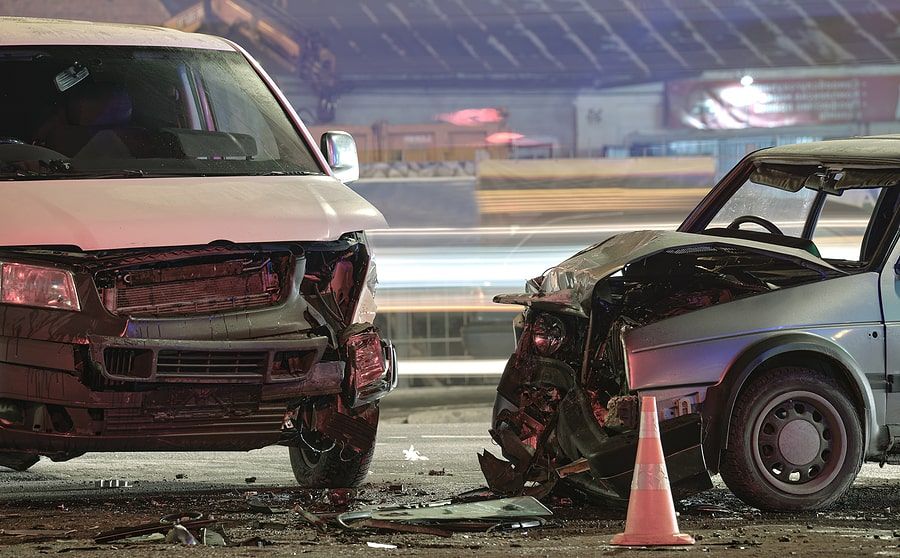Motorcycle helmets save lives and prevent serious head injuries. Not all motorcyclists wear them, however. Some states mandate helmets; in others, you can ride without one.
If you get into an accident without wearing a helmet, it could influence your motorcycle accident case. Depending on your state’s laws and requirements, the compensation you receive can decrease.
If you work with an experienced Mineola motorcycle accident attorney, however, you can recover damages whether or not you wore protective gear.
Motorcycle Helmet Laws
You must review local laws to understand how a motorcycle helmet can alter your motorcycle accident case.
Differences Between States
Each state has its motorcycle helmet laws. Some have universal laws requiring all riders, regardless of age, to wear helmets while operating a motorcycle. These states prioritize rider safety and aim to reduce the risk of head injuries in the event of an accident.
Some states have partial or no helmet laws at all. The helmet requirement in these states may depend on factors such as age, experience, or insurance coverage.
Age Restrictions
States with partial helmet laws may apply them differently by age. In some states, for instance, riders under a certain age, typically 18 or 21, must wear a helmet while riding a motorcycle.
Once a rider surpasses the specified age threshold, they may no longer be under a legal obligation to wear a helmet. Familiarize yourself with the specific laws in your state to understand how they can influence your personal injury claim.
Eye Protection Requirements
In addition to helmet laws, some states impose requirements for riders to wear eye protection. This can include goggles, glasses, or face shields. Eye protection is crucial to safeguarding riders from debris, wind, and other potential hazards that can impair vision and lead to accidents.
Understanding and adhering to these requirements is essential for both safety and potential legal implications in the event of a motorcycle accident.
For example, under New York and New Jersey’s universal helmet laws, all motorcycle drivers and passengers must wear a helmet. In Colorado, meanwhile, only drivers who are younger than 18 must wear a helmet, but everyone must wear eye protection.
Influence on Motorcycle Accident Cases
Motorcycle helmet laws can significantly influence accident cases, particularly when it comes to personal injury claims. In states with universal helmet laws, failure to wear a helmet can alter the outcome of a case. Insurance companies and opposing parties may argue that the injured rider contributed to their injuries by not wearing a helmet, thus reducing compensation. Even without a state requirement, failure to wear a helmet can open the door to opposing arguments that your injuries would not have resulted if you had been properly wearing a helmet.
Speak with an attorney with experience in motorcycle accident cases to understand how helmet laws in your state may change your case. They will guide on the specific legal implications and protect your rights throughout the process.
Can You File a Motorcycle Accident Claim if You Were Not Wearing a Helmet?
Yes, you can still file a claim and fight for compensation. While wearing a helmet is highly advisable for safety reasons, it does not necessarily prevent you from pursuing a claim if you were not wearing one.
Factors that make filing a motorcycle accident claim possible include:
Negligence of the At-Fault Party
In motorcycle accident cases, the focus is often on establishing the negligence of the at-fault party. If the other driver’s or traffic participant’s negligence caused the accident that resulted in your injuries, you can still file a lawsuit seeking compensation, regardless of whether you were wearing a helmet.
Negligence can include distracted driving, speeding, failing to yield, or driving under the influence. The primary factor in determining liability is the other party’s negligent behavior, not whether you were wearing a helmet.
Legal Guidance
Navigating the legal complexities of a motorcycle accident claim can be challenging, especially when helmet use is a factor.
Speaking with an experienced attorney is crucial in such cases. An attorney will evaluate the specific circumstances of your accident, gather evidence, and build a solid case to establish the at-fault party’s negligence. They can also guide how helmet use, or lack thereof, may alter your claim.
Whatever the circumstances of your motorcycle accident, an experienced lawyer will fight for your rights to recover reasonable compensation.
What Damages Can You Collect in a Motorcycle Accident?
In a motorcycle accident, the damages you suffer can be extensive, ranging from physical injuries to emotional distress and financial burdens. Regardless of whether you were wearing a helmet at the time of the accident, you may be eligible for recovering certain damages, including:
Economic Damages
Economic damages refer to the tangible financial losses you incurred because of the accident. These damages are quantifiable and often easy to calculate.
Common economic damages in motorcycle accident cases include:
- Medical expenses: Costs of hospital stays, surgeries, medications, rehabilitation, and any other necessary medical treatments relating to your accident injuries.
- Lost earnings: Income you have lost during your treatment and recovery period, including any potential future loss of earning capacity if your injuries resulted in long-term disabilities.
If the accident damaged or destroyed your motorcycle, you could seek compensation for the cost of repairing or replacing your bike and other belongings you had with you.
Non-Economic Damages
Non-economic damages are more subjective and aim to compensate for the intangible losses you have experienced. These damages can be challenging to calculate but are equally important.
Common non-economic damages in motorcycle accident cases include:
- Pain and suffering: Physical and emotional pain, suffering, and distress you have endured due to the accident and your injuries. You can support your demand for pain and suffering compensation with journals, expert witness testimony, and photos comparing your life before and after the accident.
- Emotional distress: Motorcycle accidents can lead to significant emotional trauma, such as anxiety, depression, post-traumatic stress disorder, and other psychological distress.
- Loss of enjoyment of life: If your injuries caused a decrease in your ability to participate in activities and hobbies you once enjoyed, you may be eligible for compensation for the loss of enjoyment of life.
These damages can be harder to back with evidence than economic damages. You have to work with an attorney to prove your right to this type of compensation.
Punitive Damages
Punitive damages punish the at-fault party’s particularly reckless, intentional, or malicious conduct.
The availability and calculation of damages can vary depending on the specific laws and regulations in your state. Only an experienced attorney can evaluate the true cost of your damages and ensure you do not settle for a low amount.
An attorney assesses the extent of your injuries, gathers evidence, and builds a strong case to support your claim for damages. They maximize the compensation you deserve, taking into account both economic and non-economic losses. An attorney also determines whether punitive damages apply in your case and advocates for your rights throughout the legal process.
How Does the Absence of a Helmet Change the Amount You Can Recover?
The absence of a motorcycle helmet can change the amount you recover in a motorcycle accident case. Laws regarding helmet use differ between states, with some requiring helmet use for all riders and others not having such mandates.

States With Helmet Laws
In states with universal helmet laws requiring all riders to wear a helmet, not wearing one can influence your ability to recover compensation. Insurance companies and defense lawyers may argue that your failure to wear a helmet contributed to the severity of your injuries. This argument can reduce the compensation you receive.
Speak with an attorney, however, as the laws and their interpretation can vary. The absence of a helmet can only change compensation for a head or face injury. You can still recover full damages if you sustain injuries to other body parts.
States Without Helmet Laws
In states without helmet laws or with partial laws, the absence of a helmet may have less effect on your ability to recover compensation.Talk to an attorney to understand the specific laws and regulations in your state.
Even in states without helmet laws, insurance companies and opposing parties may attempt to argue that your failure to wear a helmet contributed to your injuries.
Case-Specific Factors
The effect of not wearing a helmet on your claim will depend on various case-specific factors. These include the nature and extent of your injuries, the evidence you present, the strength of your legal arguments, and the specific laws and regulations in your state.
An experienced attorney will evaluate these factors and guide you on how the absence of a helmet may potentially influence the amount you can recover.
How to Prove Helmet Use in a Motorcycle Accident Case
When assessing liability and determining the extent of injuries you suffered, you may have to prove that you were wearing a helmet. You would need to:
Provide Evidence
You can use various types of evidence to establish helmet use at the time of the accident, including:
Eyewitness Testimony
If witnesses saw the accident, their statements could confirm whether you wore a helmet. Eyewitnesses who can provide a clear and accurate account of the accident significantly strengthen your case.
Police Reports
Official police reports often contain details about the accident, including observations that law enforcement officers made at the scene. These reports may note whether or not you wore a helmet, thus providing an objective record of the incident.
Photographs and Video Footage
Visual evidence, such as photographs and video footage, can provide proof of helmet use. These images, if available, can capture you wearing a helmet before or after the accident.
Tips on Collecting and Preserving Evidence
- Get camera footage: Your attorney will attempt to collect footage from traffic cameras and security cameras from nearby properties.
- Gather witness information: Your attorney will try to find witnesses who were present at the accident scene. Their statements can be crucial in confirming helmet use and supporting your case.
- Preserve your helmet: If your helmet sustained damage during the accident, preserve it as evidence. Do not repair or alter the helmet in any way, as it may be necessary to demonstrate the effect and potential protection it provided.
Expert Witnesses
Your attorney will suggest hiring an expert witness in some cases so they can share their professional opinion regarding helmet use. These individuals can include accident reconstruction experts or forensic experts who analyze the effectiveness of helmets. Their knowledge can establish the significance of helmet use in preventing or reducing injuries during accidents.
The Role of Helmet Use in a Motorcycle Accident Case
Helmets aim to protect riders from head injuries and reduce the severity of potential harm. Helmet use in a motorcycle accident case is critical to determining liability and mitigating damages. In jurisdictions with helmet laws, failure to wear one may result in contributory negligence on the motorcyclist’s part, potentially affecting their ability to recover full compensation.
Helmet use, conversely, may strengthen the case for an injured rider, showcasing responsible behavior. Courts often consider whether the absence of a helmet directly influenced the extent of injuries you sustained.

Depending on the state where the motorcycle accident occurred, the absence or presence of a helmet could make a difference in the outcome of your personal injury claim.
Even if you were not wearing a helmet in a state where it is mandatory, you can still try to recover compensation. With an experienced attorney, you can prove an at-fault party’s negligence and get the money you deserve.








